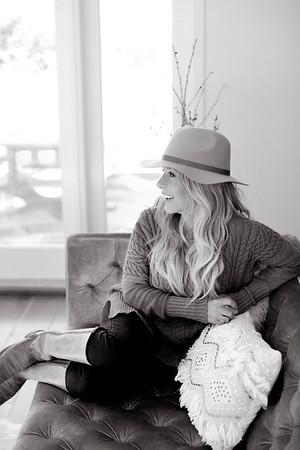
Dear Readers,
Meet my friend Kate Merrick. I met Kate this past fall. She and I have been part of a mastermind group with The Open Door Sisterhood for women in ministry. I can tell you Kate knows how to live life to the fullest. She also understands the deepest suffering a parent could experience. Her wise and whimsical words in this article and in her newest book Here, Now will bless your soul. At the end of this article is a question. When you respond to this question in the comment section of the blog you will be entered in a drawing to win Here, Now. You must live in the contiguous U.S. to be eligible. Be blessed by Kate’s words. ~Lori
Here. Now. By Kate Merrick
There’s a funny little book in the Old Testament, one which confronts the ideas of dissatisfaction and discontentment, one that urges us to practice presence. Ecclesiastes has always been a strange part of the Bible to me. And, thanks to The Byrds, I get a curious compulsion to make a flower crown and slip on my Birkenstocks every time I read it. But aside from my own cultural rendition of this ancient book of wisdom, it has come to have new meaning for me.
We know the “time for” verses. We can sing them in our heads, but if we back up and read the beginning of the book, it’s kind of a downer. You see, with all the talk of “everything is completely meaningless,” Ecclesiastes has become one of those biblical books we wave off nonchalantly or sweep under the rug. The one that asks more questions than it answers, which is in total opposition to the neat and tidy Christianity so many of us grew up with. And it’s especially puzzling following the book of Proverbs, which heartily assures us that if we just work hard, stay away from cute boys, and choose the way of wisdom, we will be okay—we’ll glide breezily through life, even. If you just do A, B, and C, you’ll surely be blessed! Easy peasy.
Ah, if only.
Ecclesiastes shows us the other side of the coin. The book goes something like this: The Teacher in Ecclesiastes is trying to understand the meaning of life. He finds it to be elusive and, at first glance, somewhat depressing. The phrase “everything is completely meaningless” is used over and over. Different translations use different words in this phrase: meaningless, vanity, futility, or pointless. In Hebrew, the word is hevel, which translates as “vapor” or “smoke.” He is saying life is temporary, impossible to grab onto or control, unpredictable. He describes the way life goes, how we invest time and energy into great things like work, wisdom, or pleasure, and yet we can’t control the outcome. He admits that there is no guarantee of the wise prospering or the wicked getting their due justice. He declares everything in life to be vapor, or meaning- less, and so he questions how we should live in light of it all. Do we seek pleasure? Wealth? Wisdom? Hedonism? If we can’t control anything, then why bother?
I have been in that place, feeling a bit like life is meaningless, cruel even. I can’t control the outcome. I can’t make my life match my personal fairy-tale script. So much of the time, we wish we could trade in our circumstances, prove the Teacher wrong, show him that life is not meaningless, not hevel. But slowly we come to understand what the Teacher is saying and face the reality of the fact that we are all going to die, some of us sooner than others, but perhaps there is still something of worth there, something we can’t see. Something that could give us a little hint as to how to live well, not just survive.
And right in that vein of thinking, there’s a verse from this short introspective book that calls out to me. Right there, tucked in after the dance of the seasons, after the summation of the human life experience on earth, there is a chorus that is perfectly timed. It sings out softly to me from the din of life and death and everything in between, asking if I will listen.
The Teacher questions the reader in chapter 3, verses 9 through 11, “What do people really get for all their hard work? I have seen the burden God has placed on us all. Yet God has made everything beautiful for its own time. He has planted eternity in the human heart, but even so, people cannot see the whole scope of God’s work from beginning to end” (emphasis mine).
God has made everything beautiful for its own time. But don’t we want to just get through it some or most of the time? Don’t we want to shut out the times that aren’t particularly lovely? Or sometimes the loveliness is too great and we shield our eyes. But we are told there is purpose and beauty in each season, in each circumstance. That eternity is in our hearts, but we are only able to see what’s right in front of us, and that’s okay. This makes us uncomfortable because it calls us to be openhanded with everything we’ve got: the number of our days, our life’s work, our play, even our communion with God and man. We are not meant to see it all at once. We are meant to breathe in today, and only today.
God is calling us to be active participants in our own lives, and collectively we are finding it to be a challenge. The way of satisfaction and contentment is out there. The way of faith and courage is laid before us. I didn’t see them so blatantly before, but now I realize God has been offering me these nuggets of fresh air my whole life—it was just up to me to stop and notice.
I don’t have the secret to life; I don’t have the formula for monastic contentment or the impressive ability to be present. But I do know it’s something in the quieting of the soul. The resting of the eyes, the still place where we stop and listen. When the Spirit of God is allowed a voice. When we are brave enough to listen to what he has to say. It’s in the deep places, the ones that take us to maturity. It’s in the courage to listen, yes, but also the courage to obey. To be fruitful right now, exactly where we are. And it’s dang hard. But it’s good and it’s real.
“What is your favorite place to meet with Jesus?”
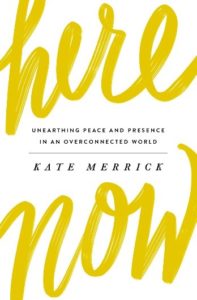
About Here, Now: Kate Merrick takes readers on a journey to drop the distractions and check back into their actual lives, discovering the good, true, and beautiful things God offers when they choose to be present right here, right now. Click here to head over to Amazon to get Here, Now.
Kate Merrick is an author, speaker, mom of three, and the cofounder of the Reality family of churches with her husband Britt. She also specializes in making up dances to The Greatest Showman soundtrack, riding a surfboard, horse, or roller skates, and adding more butter to pretty much everything. She lives in Carpinteria, California with her family, five chickens, two goats, and two miniature donkeys.

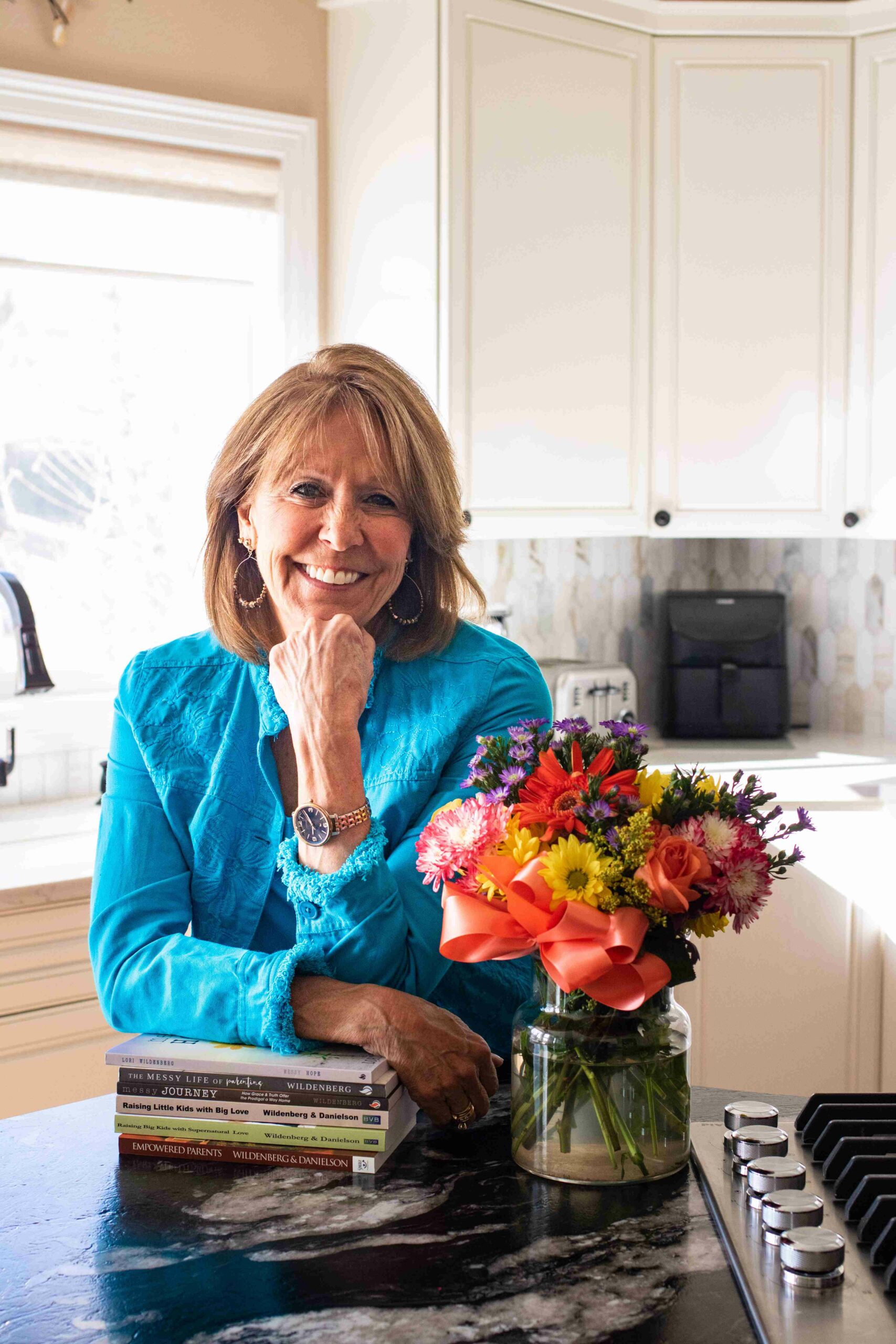
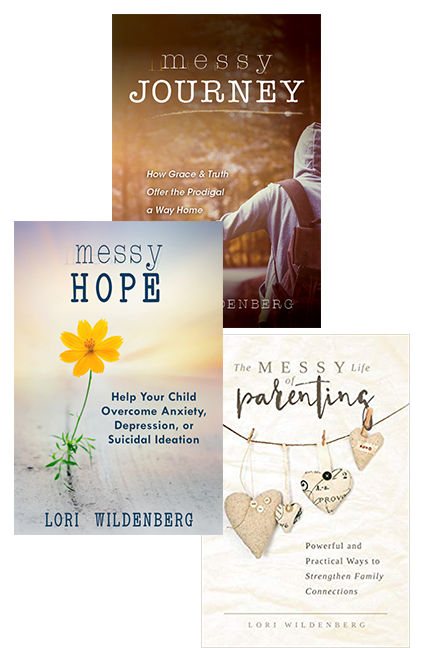
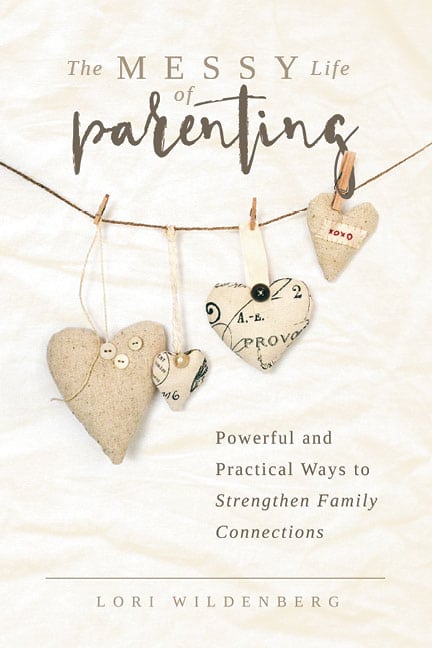
over a cup of coffee
Sipping on coffee always slows us down and helps us to be present. Thanks for your comment and participation.
In my morning devotional, a Little God Time for Mothers, with a hot cup of coffee (if I’m lucky!). ?
Yes “hot coffee” with your favorite devotional (I’ll need to check this out) those are good moments. Thanks for your comment and participation.
In the morning, when the house is still quiet. Propped up with pillows in bed!
Brenda,
I like the morning as well. In bed all cozied in sounds very nice. Thanks for your comment and participation.
While driving the kids places…
Thanks for your comment and participation. Keep enjoying time with your kids and the Lord!
In the evening when I can finally rest and be still and quiet.
Ali- Thanks for your comment and participation. I will be sending you a separate email 🙂 (you are the winner!)